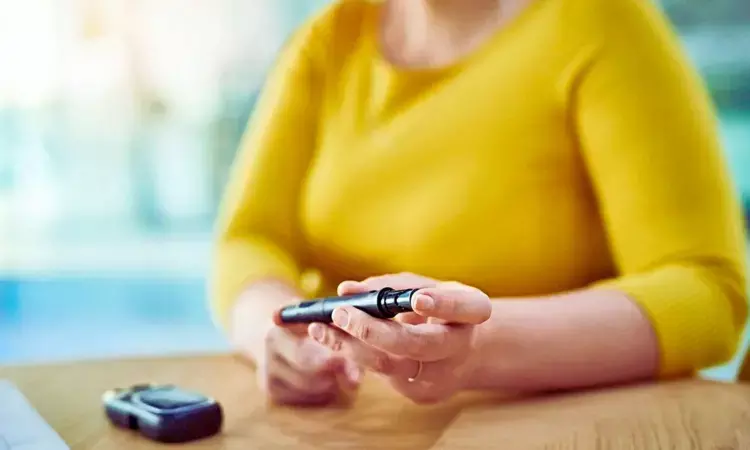- Home
- Medical news & Guidelines
- Anesthesiology
- Cardiology and CTVS
- Critical Care
- Dentistry
- Dermatology
- Diabetes and Endocrinology
- ENT
- Gastroenterology
- Medicine
- Nephrology
- Neurology
- Obstretics-Gynaecology
- Oncology
- Ophthalmology
- Orthopaedics
- Pediatrics-Neonatology
- Psychiatry
- Pulmonology
- Radiology
- Surgery
- Urology
- Laboratory Medicine
- Diet
- Nursing
- Paramedical
- Physiotherapy
- Health news
- Fact Check
- Bone Health Fact Check
- Brain Health Fact Check
- Cancer Related Fact Check
- Child Care Fact Check
- Dental and oral health fact check
- Diabetes and metabolic health fact check
- Diet and Nutrition Fact Check
- Eye and ENT Care Fact Check
- Fitness fact check
- Gut health fact check
- Heart health fact check
- Kidney health fact check
- Medical education fact check
- Men's health fact check
- Respiratory fact check
- Skin and hair care fact check
- Vaccine and Immunization fact check
- Women's health fact check
- AYUSH
- State News
- Andaman and Nicobar Islands
- Andhra Pradesh
- Arunachal Pradesh
- Assam
- Bihar
- Chandigarh
- Chattisgarh
- Dadra and Nagar Haveli
- Daman and Diu
- Delhi
- Goa
- Gujarat
- Haryana
- Himachal Pradesh
- Jammu & Kashmir
- Jharkhand
- Karnataka
- Kerala
- Ladakh
- Lakshadweep
- Madhya Pradesh
- Maharashtra
- Manipur
- Meghalaya
- Mizoram
- Nagaland
- Odisha
- Puducherry
- Punjab
- Rajasthan
- Sikkim
- Tamil Nadu
- Telangana
- Tripura
- Uttar Pradesh
- Uttrakhand
- West Bengal
- Medical Education
- Industry
Poor Glycaemic Control Around Conception Linked to Higher Preeclampsia Risk in Women With Type 1 Diabetes: Study

Sweden: Women living with type 1 diabetes (T1DM) face a significantly greater risk of preeclampsia during pregnancy, and this risk rises in a dose-dependent manner with worsening blood sugar control around conception, according to new research published in BJOG: An International Journal of Obstetrics & Gynaecology.
- 16.8% of women with type 1 diabetes developed preeclampsia compared with 2.9% of women without diabetes (aRR 4.7).
- Risk of preeclampsia increased with higher peri-conceptional HbA1c levels: 11.6% (<48 mmol/mol), 23.3% (≥76 mmol/mol).
- Adjusted relative risk rose in a dose–response manner: HbA1c <48 mmol/mol (aRR 3.4), 48–61 mmol/mol (aRR 4.6), 62–75 mmol/mol (aRR 5.7), ≥76 mmol/mol (aRR 6.3).
- The term preeclampsia risk was 3.5 times higher in women with type 1 diabetes compared with women without diabetes.
- The risk of early preterm preeclampsia (<34 weeks) was 7.2 times higher in women with type 1 diabetes.
- Late preterm preeclampsia (34–36 weeks) was 9.9 times higher in women with type 1 diabetes.
- Women with type 1 diabetes remained at a higher risk of preeclampsia even with HbA1c levels within guideline-recommended targets.
- Optimal peri-conceptional glycaemic control was associated with the lowest risk of preeclampsia in women with type 1 diabetes.
Dr Kamal Kant Kohli-MBBS, DTCD- a chest specialist with more than 30 years of practice and a flair for writing clinical articles, Dr Kamal Kant Kohli joined Medical Dialogues as a Chief Editor of Medical News. Besides writing articles, as an editor, he proofreads and verifies all the medical content published on Medical Dialogues including those coming from journals, studies,medical conferences,guidelines etc. Email: drkohli@medicaldialogues.in. Contact no. 011-43720751


